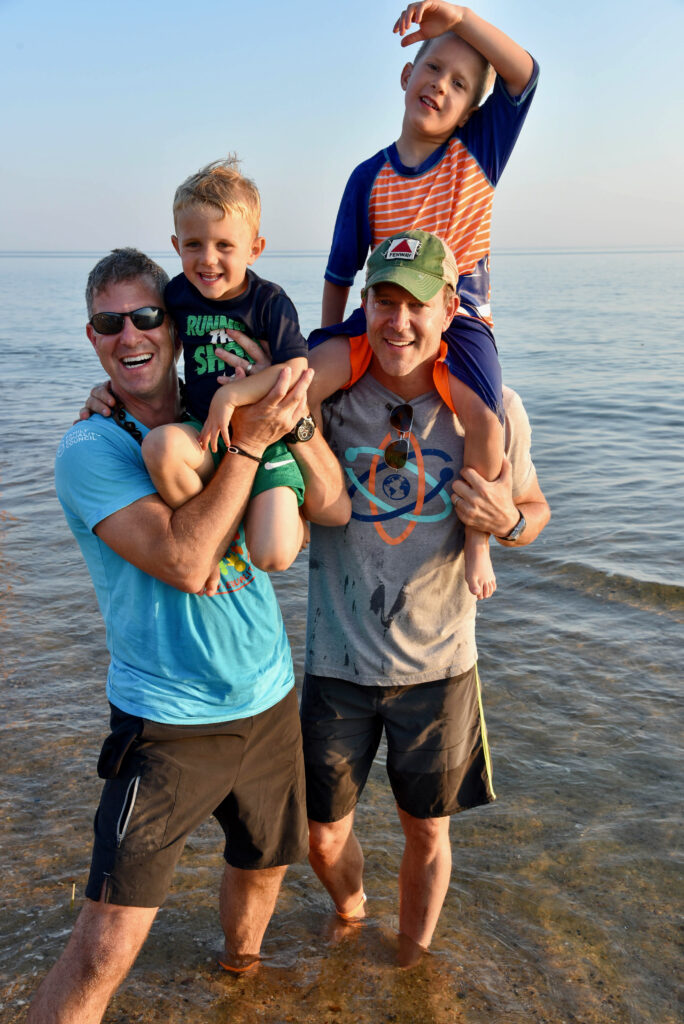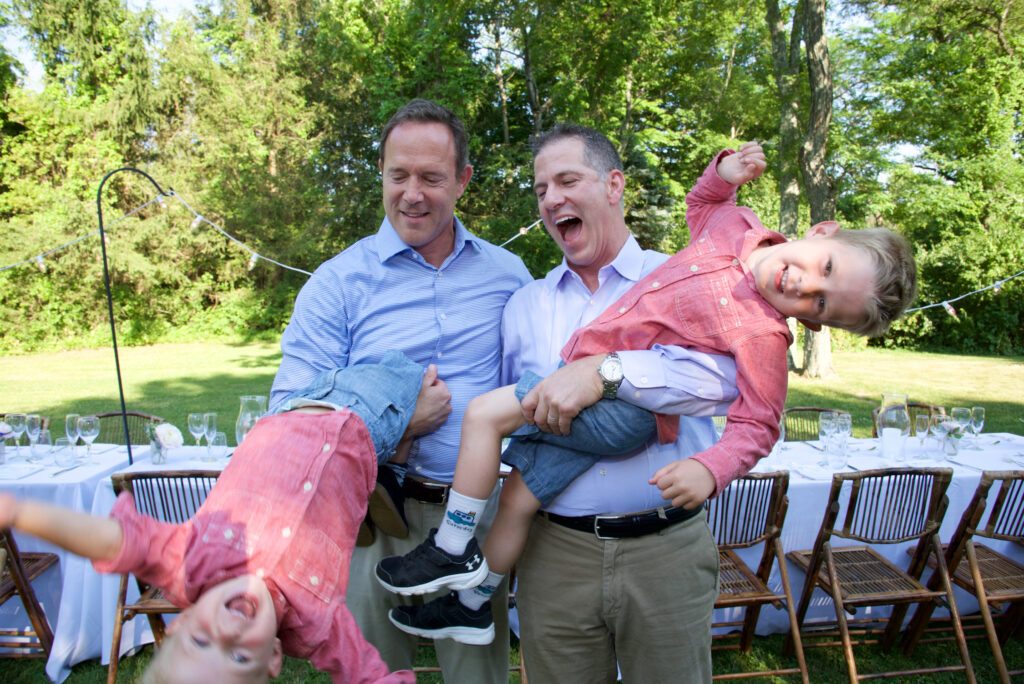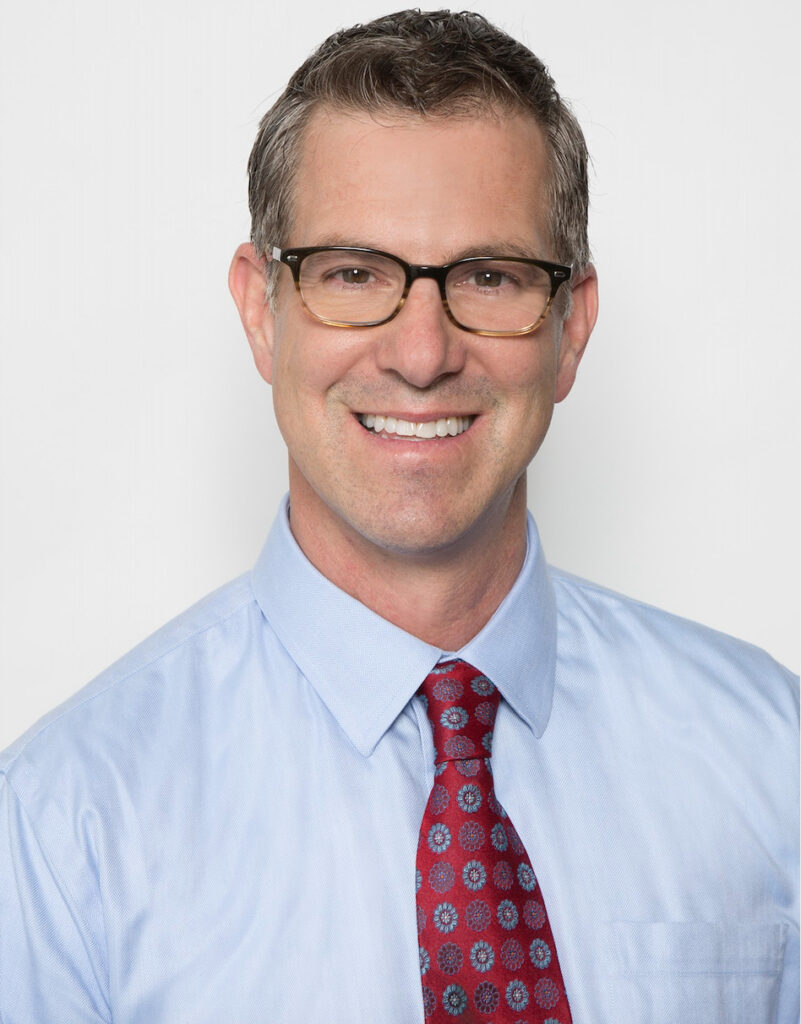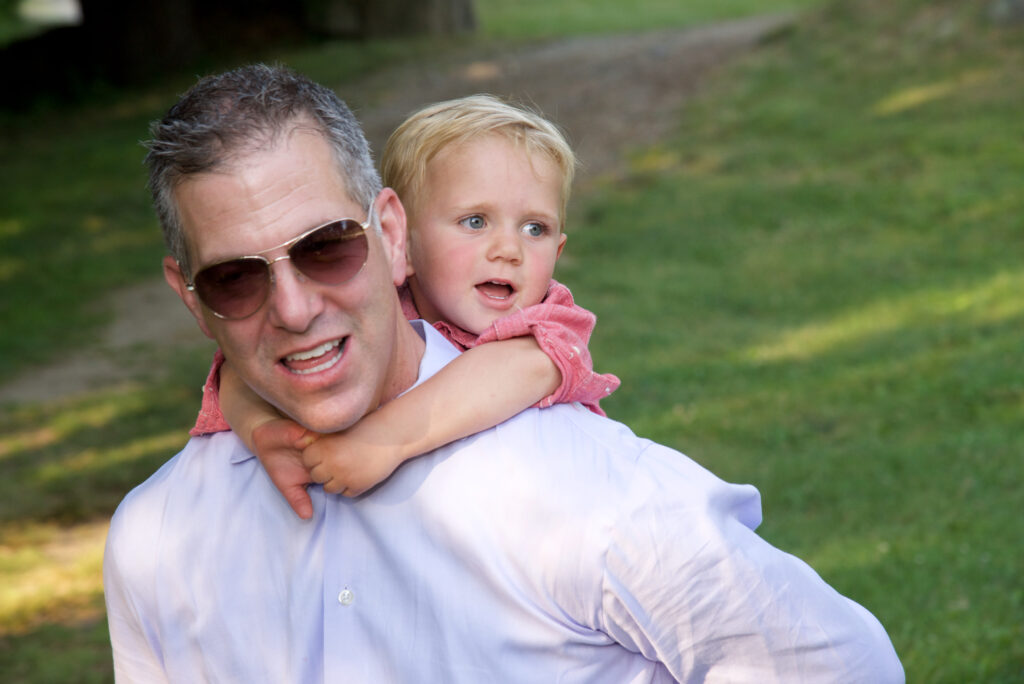New frontiers in LGBTQ+ parenting
Gay dad Dr. Mark Leondires is at the medical forefront of LGBTQ+ parenting, in his professional and personal lives.
Dr. Leondires is founder, medical director and partner in reproductive endocrinology at RMA of Connecticut, and founder of Gay Parents To Be. Board-certified in obstetrics and gynecology, and reproductive endocrinology and infertility, Dr. Leondires might be gay but he is also what was once referred to as a family man. He married his husband in 2011 and is a father to two children conceived through egg donation and surrogacy. Naturally, we wanted to ask Dr. Leondires to about some of the options for LGBTQ+ parenting today.
In February, a New York State directive went into effect allowing same-sex couples the ability to get coverage for fertility services without first paying out-of-pocket for fertility treatments. Do you believe this will radically change the way LGBTQ+ parents foresee making a family?
Dr. Leondires: The New York State law does open up the door for many local LGBTQ+ persons to access care based on accessing their benefit. I am thrilled about this step as a leading state in the US. I can only hope it opens the eyes of other mandated states to be inclusive in their definition of fertility challenges. This can and will dramatically change options for cisgender female couples as their entry to fertility was often held up, postponed, or canceled due to the need to pay for 2-6 IUIs cycles out-of-pocket. Now, they only need to pay for donor sperm, shipping of that sperm, and concordant psychosocial counseling. In regards to cisgender male couples, where their total cost is upwards of $150k, it will reduce the burden by about $20k which is substantial to many, and it will allow them to proceed sooner rather than later.

What are some common oversights LGBTQ+ parents might not initially consider at the beginning of their parenting journey?
Dr. Leondires: There are many oversights or differences in parenting pathways for LGBTQ+ persons. First of all, many don’t realize the amount of work, decisions, and coordination necessary to make the entire process happen. Whereas more than 50% of all pregnancies in the US are unplanned, regardless of your orientation, for LGBTQ+ persons, almost all are planned for, budgeted, and require medical assistance. Furthermore, understanding the role of the US FDA regulations and the guidelines put in place by the American Society for Reproductive Medicine for LGBTQ+ protection and guidance is key.
Simply, there is nothing that has prepared intended parents for choosing a donor, a life-changing decision, or managing the strongly recommended legal documentation to protect the integrity of their parentage in the future.
There have been waves of “gayby” booms, such as lesbians self-inseminating back in the ’70s, ’80s and ’90s, gay men using surrogates, transmen giving birth. What was the lightbulb moment for you founding Gay Parent to Be as a service to our community?
Dr. Leondires: After I entered the family building process and we had our first child, I realized the dearth of resources for LGBTQ+ persons on how to get started. We experienced our own challenges and course corrections with very little online support or literature to help us navigate the process. I wanted to help our community be better prepared to face these issues. It really pushed me to be a strong advocate in the fertility community for better education and treatment for all LGBTQ persons.

You married your husband in 2011 and have two children conceived through egg donation and surrogacy. What appealed to you about this biologically-related path and what were some of the challenges?
Dr. Leondires: I always wanted to be a parent. In fact, it was part of the struggles in my coming out process in the ’90s. For me, it was simply a natural drive for biological conception. It was a challenge to find a donor and a struggle to process that we would ever know or meet our donor. This led to us creating a separate legal agreement for future contact. Now, it is wonderful that most donors are willing to be known. Another struggle we faced was that it took 6 months to get a birth certificate for our second son, which was very anxiety-generating for us, to say the least. I was quietly concerned as we did normal, everyday things like travel or visit the doctor with our son and the protection of our parental rights while we did not have that document. This is another reason why I have been working with other legal advocates for universal parentage acts to simplify the assignment of parentage for LGBTQ+ persons.
LGBTQ people can legally adopt or foster children in every state in the country. But other laws relating to donor rights, insemination and medial intervention differ state to state. Thanks to the Child-Parent Security Act, gestational surrogacy is now legal in New York. Do you see surrogacy becoming a common path to parenthood for gay men?
Dr. Leondires: Considering that compensated surrogacy has been legal in 46 other states and NY gay men have been going to other states to complete their family building journeys, I do not know if it will change the appeal of biological parenting, but it may change the ease. The New York CPSA is inclusive on only NY residents and NY surrogates and has some added protections for surrogates. Additionally, all the New York IVF programs that previously could not legally support LGBTQ+ dads-to-be can help dads now. This allows a new avenue of accessibility that is wonderful to have.

Are public attitudes keeping up with legislation or do you think there is a stigma attached to LGBTQ+ parents?
Dr. Leondires: Things are getting better, but there are definitely remaining stigmas nationally and internationally. Love makes a family, and all people who want to be parents have love to give, regardless of their sexuality. I look forward to the progressive millennial generation to further open up the world in regards to sexuality as something that is not a choice, not to be judged, and is a small representation/part of who someone is. I know that when I became a parent, I became much more aware of the need to be proud of myself and my family, for their behalf and to set an example. As more LGBTQ parents raise their kids, more of the world will understand that we are not different, we worked very hard, and we only want the best for all families and children, whether they have LGBTQ+ or straight parents.
The world is changing faster than we can keep up. We all need to work together to educate others, care for the future and support everyone who wants to be a parent. I hope the US and other progressive countries can turn the tide against the LGBTQ+ hate in other countries and that we can all progress to an inclusive, loving, worldwide society.
Any last words of advice for LGBTQ+ parents just starting their journey to parenthood? Any essential research they need to be doing?
Dr. Leondires: If you want to be a parent, there are many pathways and choices. Take a breath, take your time, and be thoughtful. It is more of a marathon than a sprint. US resources like Gay Parents to Be, Family Equality, Gays With Kids, Resolve, and Men Having Babies are great sources to get started on your research.
About Dr. Mark Leondires
Dr. Mark P. Leondires is the founder and Medical Director of Reproductive Medicine Associates of Connecticut (RMA of Connecticut), the founder of Gay Parents To Be (GPTB), a family building resource for the LGBTQ+ community, and a founder at Gays with Kids (GWK), the world’s largest resource for gay, bi and trans dads and dads-to-be. He is board-certified in both Obstetrics and Gynecology and Reproductive Endocrinology and Infertility. Dr. Leondires set up his practice with one main focus in mind: to help each and every patient succeed in building the family they desire. He has been recognized nationally for his work in reproductive endocrinology, including being named amongst the Best Doctors in America, and Castle Connolly’s Top Doctors for several consecutive years. In addition to serving as Chair of ASRM’s LGBTQ Special Interest Group, Dr. Leondires is a current member of Resolve’s Physician Council, and is a tireless advocate for inclusive reproductive services for the LGBTQ+ community.
About Reproductive Medicine Associates of Connecticut
RMA of Connecticut is a leading fertility practice helping couples and individuals grow their family. Their assisted reproductive technologies (ART) include intrauterine insemination (IUI), in-vitro fertilization (IVF) and pre-implantation genetic testing (PGT). Their internationally recognized Gay Parents To Be® program at RMA of Connecticut specializes in LGBTQ family building. For the last three years, RMA of Connecticut has been recognized as a Leader in Healthcare Equality by the Human Rights Campaign. View complete national and clinical IVF success data on sart.org. For more information or to schedule an appointment, please visit www.rmact.com.






